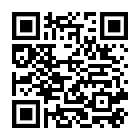Review《Getting Things Done》
I haven't found this book in library of Chinese version, but fortunately I searched the original one and borrowed back for reading. It took a long time to finish reading for me.
David Allen, the author has been called one of the world’s most influential thinkers on productivity and has been a keynote speaker and facilitator for such organizations as New York Life. 《Getting Things Done》has been published in twelve foreign contries.
This is a clear and strong logical book. It analyzes some typical methods on how to release an overwhelming stress to reach a height with quick and effective work.
Part 1: The Art of Getting Things Done
1. A new practise for a new reality.
Anxiety is caused by a lack of control, organization, preparation and action. The methods are all based on two objectives: one is capturing all the things that need to get done-now, later, someday, big, little, or in between- into a logical and trusted system outside of your head and off your mind;Second is disciplining yourself to make front-end decisions about all "inputs" you let your life so that you will always have a plan for "next actions" that you can implement or renegotiate at any moment. You can simply use this as a guide to getting back into better control when you feel you need to.
Time is the quality of nature that keeps events from happening all at once. Lately it doesn't seem to be working. Focusing on primary outcomes and values is a critical exercise, certainly. But it doesn't mean fewer chanllenges in getting the work done. Quite the contrary: it just ups the ante in the game,which still must be played day to day. It must manage multiple tiers of priorities as well as maintain control over hundreds of new inputs daily. There is no reason ever to have the same thought twice, unless you like having that thought.
Life is denied by lack of attention, whether it be to cleaning windows or trying to write a masterpiece. Can you get into your "productive state" when required? how to transform "stuff"? Stuff: anything you have allowed into your psychological or physical world that doesn't belong where it is, but for which you haven't yet dertermined the desired outcome and the next action step. Thinking in a concentrated manner to define desired outcomes is something few people feel they have to do. But in truth, outcome thinking is one of the most effective means available for making wishes reality. If your mind is empty, it is always ready for anything, it is open to everything.
2.Getting Control of Your Life: The Five Stages of Mastering Workflow:
(1) collect : things that command our attention.
(2) process: what they mean and what to do about them.
(3) organize: the results, which we.
(4) review: as options for what we choose to.
(5) do: this constitutes the management of the "horizontal" aspect of our lives-incorporating everything that has our attention at any time.
3. Getting Projects Creatively Under Way: The Five Phases of Project Planning.
Enhancing "vertical" Focus. You’ve got to think about the big things while you’re doing small things, so that all the small things go in the right direction.Horizontal focus is all you will need in most situations, most of the time.
The most experienced planner in the world is your brain. We know that the focus we hold in our minds affects what we perceive and how we perform. Imagination is more important than knowledge. Even your physiology will respond to an image in your head as if it were reality.
Part 2: Practicing Stress-Free Productivity
1.Getting Started: Setting Up the Time,Space and Tools.
You need no new skills to increase your productivity-just a new set of behaviors about when and where to apply them. So you create a block of time to initialize this process and prepare a workstation with the appropriate space, furniture, and tools.It's critical that your full psychic attention be available for the work at hand.
2.Collection: Corralling your "stuff"
There are very practical reasons to gather everything before you start processing it:
it is helpful to have a sense of the volume of stuff you have to deal with;it lets you know where the "end of tunnel" is and when you are processing and organizing, you don't want to be distracted psychologically an amorphous mass of stuff that might still be "somewhere." Once you have all the things that require your attention gathered in one place, you will automatically be operating from a state of enhanced focus and control.
3.Processing: Getting "In" to Empty
Getting "In" to empty doesn't mean actually doing all the actions and projects that you've collected. It just means identifying each item and deciding what it is, what it means, and what you are going to do with it. The in-basket is processing station, not a storage bin. The last step in getting to the bottom of "in" requires a shift in perspective from the single-action details to the larger picture-your projects.
4.Organizing: Setting Up the Right Buckets
Having a total and seamless system of organization gives you tremendous power bacause it allows your mind to let go of lower-level thinking and graduate to intuitive focusing. But your physical organization system must be better than your mental one in order for that to happen. Making checklists, it is creative reminder.
5.Reviewing:Keeping Your System Functional
The purpose of this whole method of workflow management is not to let your brain become lax,but rather to enable it to move toward more elegant and productive activity. You must be assured that you are doing what you need to be doing. Reviewing your system on a regular basis and keeping it current and functional are prerequisites for that kind of control. All of this means your system cannot be static. In order to support appropriate action choices, it must be kept up to date. And it should trigger consistent and appropriate evaluation of your life and work at several horizons.
6.Doing:Making the Best Action Choices
Your work is to discover your work and then with all your heart to give yourself to it. The best place to succeed is where you are with what you have.Working from bottom up, you are never lacking in opportunities to clarify your priorities at any level.Pay attention to which horizon is calling you.
7.Getting Projects Under Control
All of us could be doing more planning, more informally and more often, about our projects and our lives. Keep good writing tools around all the time so you never have any unconscious resistance to thinking due to not having anything to capture it with. Function often follows form, give yourself a context for capturing thoughts, thoughts will occur that you don't yet know you have.
Part 3: The Power of the Key Principles
1.The Power of the Collection Habit
When groups of people collectively adopt the 100 percent collection standard,they have a tight ship to sail. It doesn't mean they are sailing in the right direction, or even that they are on the right ship, it just means that the one they are on, in the direction it is going, is doing that with the most effecient energy it can.
2.The Power of the Next-Action Decision
Talk does not cook rice. We are all already powerful,but deciding on and effectively managing the physical actions required to move things forward the more positive aspects of our nature.
3.The Power of Outcome Focusing.
Defining specific projects and next actions that address real quality-of-life issues is productivity at its best. Problems and conflicts will not go away-they remain inherent as you attempt to change anything in this world. The operational behaviors of this book, however, will provide the focus and framework for addressing them in the most productive way.

 她理财 App
她理财 App






 就是践行起来不容易……
就是践行起来不容易……



